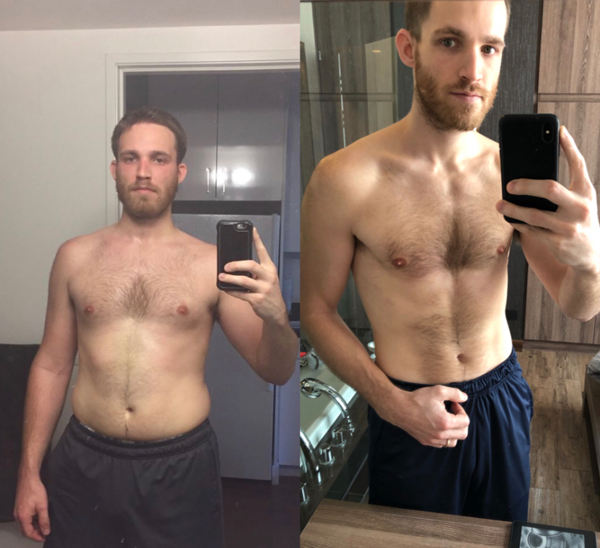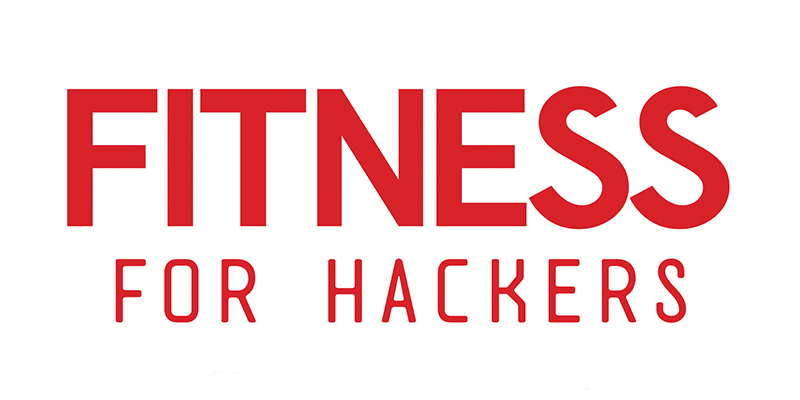today i’m releasing my new book, Fitness for Hackers. it’s for men in technology who struggle with their health. i wrote it for me.
in college i hit a record low, err high, when i broke 238 pounds as a 5′ 11″ idiot with shaggy hair and no future. this was painfully clear when a YouTube video i created with my girlfriend, went viral for a day.

i moved to New York City a year later and told myself i’ll do better. in Harlem i joined a gym for $9 /month, ran Central Park 2-3x /week, and lost 62 pounds in 6 months.
(i actually lost ~55 pounds, then had an allergic reaction to a dental cleaning and couldn’t chew food for a week, which yielded a short-lived 7 pound drop.)
then what happened? i slowly gained it all back.
excuses
for a long time i made excuses about why i couldn’t keep the weight off.
- travel too much –> inability to have a routine
- twentysomething New Yorker –> drinking culture
- career ambitions –> networking events with finger foods
then a fit friend of mine, Scott, wanted to hang out. he said: “let’s get a protein smoothie.” i had never been asked to meet for protein, only liquor and pizza.
this began a sequence of “aha” moments and experiments. the winning end result of those experiments is this book.
why me?
i know little about omega-3 oils, lactic acid, and all the other stuff your neighborhood personal trainer likes to talk about.
instead i’ve taken an empirical approach: does this behavior lead to strength gain, or loss? does this type of food give me more energy, or less?
since all my readers have already read 10 fitness books, and are still fat, i realized something is missing. that something is the tie-in to what we do every day… building products, measuring outputs, and using our brains.
the program
Fitness for Hackers is a 3 month program you can run on loop. just like software, iterations and tweaks are expected.
first, pick a diet. the “seafood” strategy (see food and then eat it) doesn’t work.
second, learn to spend the minimum viable time in the gym so you don’t burn out. but lift to failure, and track everything. i show you how.
third, measure gains and losses to adjust your regimen as needed. from lipid panels to body scans, i share my own results.
sounds simple, right? that’s the first rule: simplicity.
most fitness programs don’t work because they’re too complicated. or they take too much time. or they rely on voodoo science like taking cold showers when you wake up. Fitness for Hackers is the antithesis to these advices.
get started
this is the first approach to fitness with a hacker mindset.
we’ll use kanban, mobile apps, and spreadsheets to turn our body into a test tube, and become our best selves in the process.


congratz Ryan! the design looks fantastic. i also like how you’ve systemized it and codified the process.